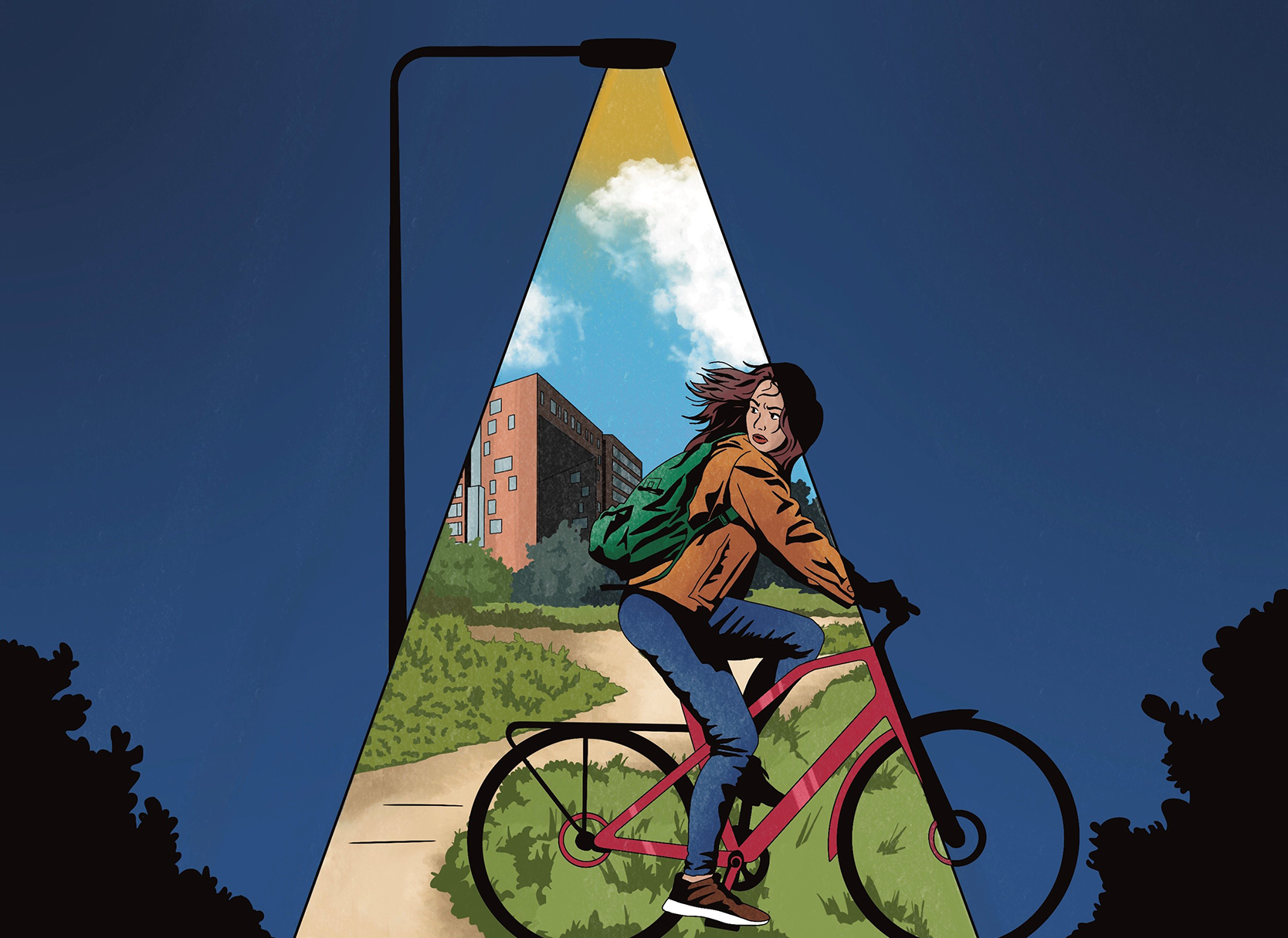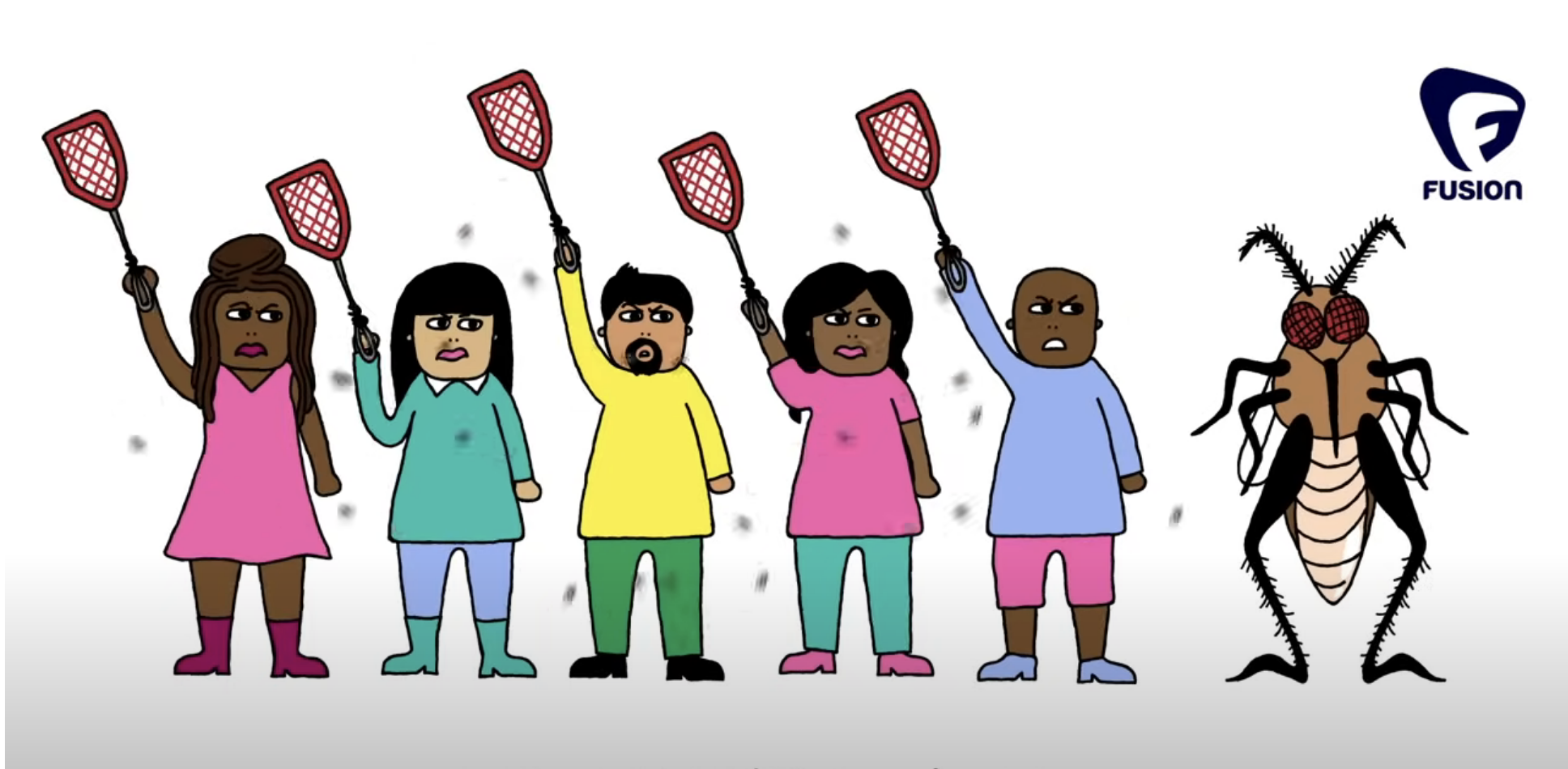Within a few days, the campaign ‘We claim the night’ raised over half a million euros. Student organisations, too, are concerned about women’s safety.
‘We claim the night’ was set up by Danique de Jong after the murder of 17-year-old Lisa from Abcoude, who was killed last week on her way home after a night out in Amsterdam.
The week before, another woman had been the victim of sexual violence in the same area, presumably by the same perpetrator. This led to outrage. ‘No matter what we look like, where we are, or what time it is: let women get home safely’ is the message of the campaign.
Responsibility
Female students do not always feel safe either. ‘I always cycle faster at night, pay more attention, and wear only one earbud so I can hear what’s going on. And I constantly share my location via my phone with a few people, so there’s always someone who knows where I am’, a Maastricht student told the university newspaper Observant.
During the introduction week in Nijmegen, it almost ended badly. On Wednesday evening, an attempt was made to take a female student who was cycling home against her will in a car, the coordinator of the introduction week reported to the Brabants Dagblad newspaper. This ended well in the end, but female students in Nijmegen are advised not to cycle home alone.
‘We still tend to view women’s safety as their individual responsibility, but that is not the case’, emphasises Mariëtte Hamer, the government commissioner leading the fight against sexual violence. She believes it is important to make the subject open for discussion.
Inappropriate behaviour
Maaike Krom, chair of the National Student Union, agrees. ‘It’s good that there is more attention for this now, but it’s terrible that it had to cost a life.’
Earlier this year, it became clear that half of all female students in higher education had recently been victims of sexually transgressive behaviour. For one in six female students in higher professional education (hbo) and one in four female students in university education, it escalated into physical violence.
Educational institutions
‘Educational institutions can help students who have been victims’, says Krom. ‘But students often don’t know where to turn to.’
Sarah Evink, chair of the student union Interstedelijk Studenten Overleg, agrees. ‘I do see that it has received more attention in recent years. For example, some introduction weeks have organised a walk home together this year. It is important that institutions create an open atmosphere so that if something goes wrong, there is a good place to talk about it.’
Translated using DeepL

 ‘We still tend to view women’s safety as their individual responsibility, but that is not the case’, emphasises Mariëtte Hamer, the government commissioner leading the fight against sexual violence. Photo Ingo Doerrie-Unsplash
‘We still tend to view women’s safety as their individual responsibility, but that is not the case’, emphasises Mariëtte Hamer, the government commissioner leading the fight against sexual violence. Photo Ingo Doerrie-Unsplash 

